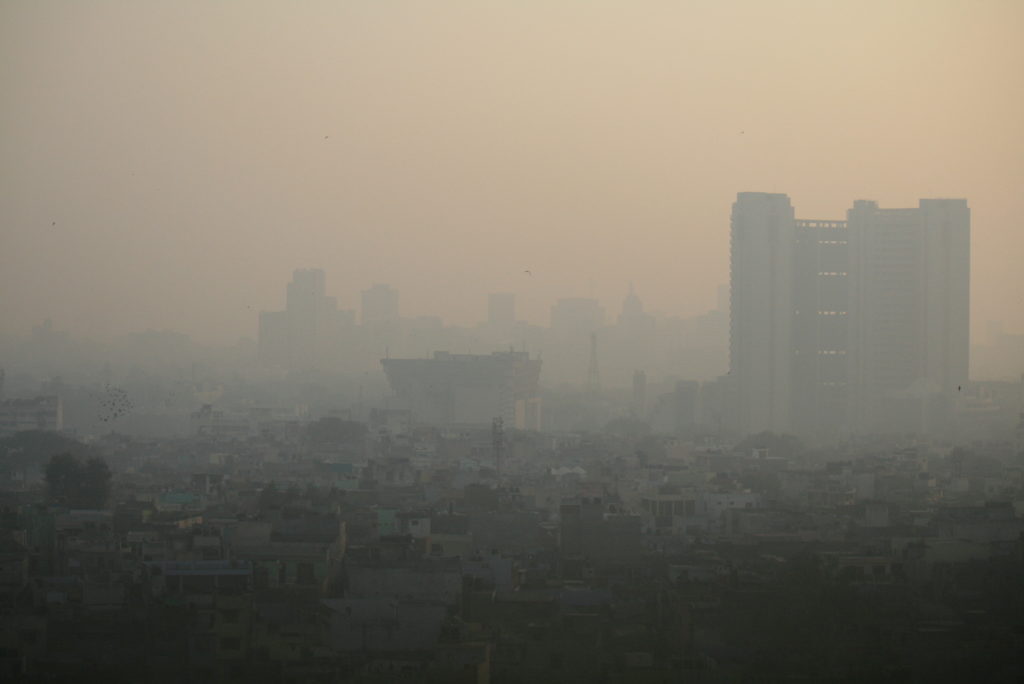
Strategies to motivate energy conservation in urban India
UCLA study finds that negative health effects are a powerful force to reduce consumption
Last month, breathing the air in Delhi was the equivalent of smoking 50 cigarettes in a day.
The toxic air — which reached five times what the U.S. Environmental Protection Agency’s Air Quality Index considers unhealthy — was largely due to old farming techniques and modern, high-energy urban lifestyles, Vox reported.
Such air quality problems are not limited to Delhi. Cities and towns across India face a public health crisis. One global study reported that 1.1 million people died from air pollution in India in 2015, while a recent report estimated that bad air quality was responsible for 30 percent of premature deaths in the country.
Many potential fixes for the problem must come at an industry or public policy level — including actions to reduce reliance on coal and update agricultural practices. But personal and household energy conservation also has an important role to play.
A recently published UCLA-led study sheds light on how to motivate such conservation. It monitored energy usage at an apartment building in an urban area of New Delhi, analyzing 375,805 15-minute electricity readings from 19 households over the course of an academic year, from August 2013 to May 2014.
The goal was to figure out which was better at getting people to conserve: information about health effects of energy use or information about cost savings due to conservation. Health information made a big difference, motivating participants to cut energy usage by 18.4 percent. Information on cost savings induced almost no conservation at all.
“Health is a big motivator for people to act on environmental issues,” said Magali Delmas, a UCLA environmental economist and co-author of the study. “If you framed things in terms of just the environmental impact, it might not work as well.”
The outcome contradicts a pre-study survey of 1,820 residents of New Delhi. Very few listed health as a reason for conserving, while saving money was stated to be an important factor.
Delmas says people often fail to understand the link between energy use and health impacts, which often involves power generation that occurs miles away.
“We wanted to see if there were ways to make energy use and its impact on the environment more visible to people,” Delmas said.
The study replicated methods from two previous studies led by Delmas in graduate and family housing at UCLA. For each, researchers installed sensors that provided subjects with highly specific information — down to individual appliances — about their personal electricity usage.
Subjects were split into three groups: The first was told how much money they could save if they were to change their electricity habits. The second was informed about the health effects of their electricity usage. A third group was used as a control group to compare against the two others.
As with today’s study, health information motivated the most conservation. The group given information about cost savings didn’t change their habits at all.
The authors of the study were surprised by the results, they wrote. They expected that higher poverty rates in New Delhi would make saving money more important. But the outcomes were almost identical.
Part of the reason for the results could be that electricity is relatively cheap in the United States and India. The study notes that even if residents in India conserved as much as their most efficient neighbor, it would only save 327 rupees per month, the cost of two gallons of milk. Delmas said information is important, but it usually has to be about something that substantially affects people’s lives.
“Information is the first part of the equation,” Delmas said. “When you add the motivation of preventing illnesses and improving health, people are more likely to conserve energy.”
TOP IMAGE: View of air pollution in West Delhi. | Photo by Jean-Etienne Minh-Duy Poirrier.




